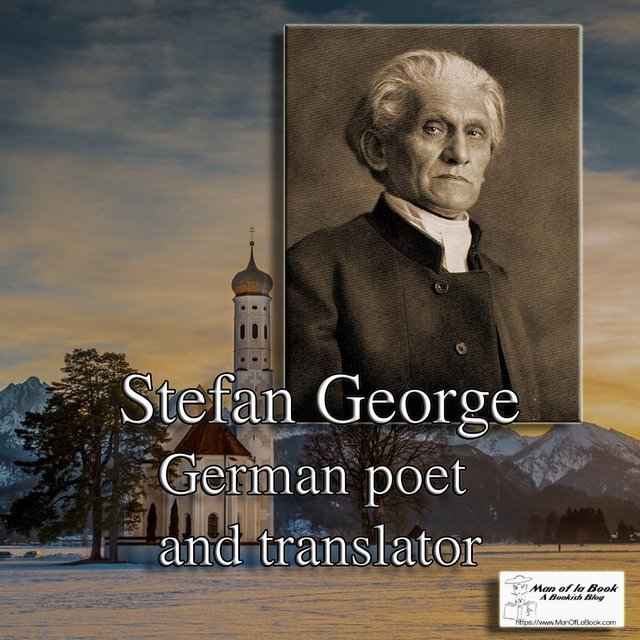
Stefan George (12 July, 1868 – 4 December, 1933) was a German poet and translator. While primarily a poet, he also edited several literary magazines.

Books by, or about, Stefan George*
- Stefan Anton George was born in Büdesheim, now part of Bingen in the Rhieland-Palatinate.
- His father, Stefan George as well, was a wine merchant and innkeeper. His mother, Eva George was a homemaker.
- During the time, daily life in the area revolved around the Roman Catholic Church. People’s lives revolved around feast days.
- Stefan George was a brilliant student. In fact, he was admitted the Ludwig-Georgs-Gymnasium in Darmstadt, one of the best secondary schools in Hesse.
- By the time he graduated the future poet masted French, Latin, and Greek as well as a thorough knowledge of modern European literature. He also had friends, access to theaters and libraries.
- Stefan George taught himself Norwegian so he can read the works of Henrik Ibsen in their original language. Later on he went to live in London so he could improve his English.
- By the time he was 19, Stefan George started a literary magazine with his fellow students. This is where he published his first poems.
- The poet found that he couldn’t express himself in German through poetry and preferred to write in French and Spanish. He even invented his own language, Lingua Romana, which took words from Spanish and Latin using German syntax.
- In 1914, when World War I broke out, Mr. George predicted a dire outcome for Germany. By the 1920s he despised what became of Germany and wrote poems about a new, noble German culture.
- The Nationalsozialistische Deutsche Arbeiterpartei (SDAP), which later became and inspired the Nazi Party, adopted his concepts of “fire of the blood” and “thousand year Reich”. Ironically, Stefan George despised Hitler and the Nazi Party referring to them as “hangman”. However, he was offered an honorary position and a lot of money as the forefather of the “national revolution”.
Stefan George declined the money and the position. Many years later, he told his friends that a wealthy Jewish heiress, Ida Coblenz, was his “world”, and many poems were inspired by her.
Books by, or about, Stefan George*
Zohar – Man of la Book
*Amazon links point to an affiliate account, the money is usually spent on books
Sources:
Stefan Anton George Biography | My Poetic Side
--- Please like and follow ManOfLaBook.com ---

